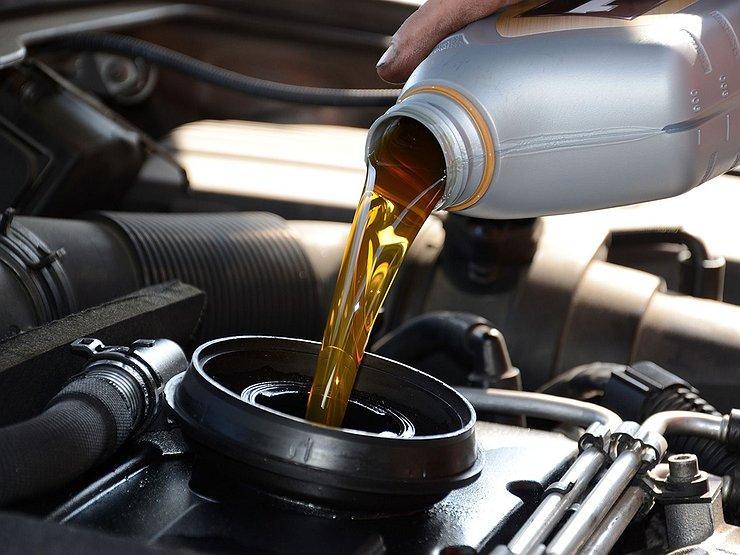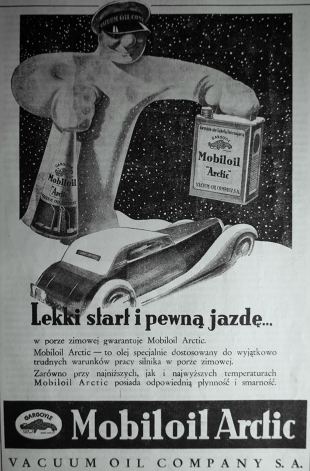
Should I change my engine oil before winter?
 Single-grade motor oils are a thing of the past. If it were otherwise, auto repair shops with the first snow would be under siege, not only because of tire changes, but also because of the need to change engine oil to winter. Currently, car manufacturers recommend changing engine oil after a certain number of kilometers or at least once a year. Does the recommended "once a year" mean it's always worth replacing before winter?
Single-grade motor oils are a thing of the past. If it were otherwise, auto repair shops with the first snow would be under siege, not only because of tire changes, but also because of the need to change engine oil to winter. Currently, car manufacturers recommend changing engine oil after a certain number of kilometers or at least once a year. Does the recommended "once a year" mean it's always worth replacing before winter?
A guarantee of easy starting and safe driving in winter - this is how the oil manufacturer advertised in the 30s  Mob. Mobiloil Arctic, which was offered to drivers at the time, was a monograde oil that needed to be changed as the seasons changed. As you can read in the automotive archives, this oil has been specially adapted to the extreme conditions of winter engine operation. Its advantage over the competition was that, despite its winter specification, it had to provide excellent protection for a hot engine. Complete protection even at 400 degrees Fahrenheit (about 200 °C), New York newspapers reported in 1933. Today, motor oils used in sports engines must withstand temperatures up to 300°C, a condition such as Mobil 1 oils in Vodafone McLaren Mercedes vehicles.
Mob. Mobiloil Arctic, which was offered to drivers at the time, was a monograde oil that needed to be changed as the seasons changed. As you can read in the automotive archives, this oil has been specially adapted to the extreme conditions of winter engine operation. Its advantage over the competition was that, despite its winter specification, it had to provide excellent protection for a hot engine. Complete protection even at 400 degrees Fahrenheit (about 200 °C), New York newspapers reported in 1933. Today, motor oils used in sports engines must withstand temperatures up to 300°C, a condition such as Mobil 1 oils in Vodafone McLaren Mercedes vehicles.
The choice of engine oil of the appropriate quality has a significant impact on the operation of the car in winter. In this regard, synthetic oils clearly outperform semi-synthetic and mineral oils. For the latter two, an oil change before winter can be a wise decision. Engine oil loses its parameters with every kilometer traveled. It is exposed to high temperatures and oxidized. The result is a change in physico-chemical properties. This also applies to low-temperature properties, on which the smooth operation of our car depends in winter, for synthetic oils these changes occur more slowly, and the oil retains its effectiveness longer.
Does the darkening of the oil mean that it is losing its properties?
Assessing engine oil suitability comes with at least two myths. First, if your engine oil has turned dark, it's time to think about changing it. The second myth common among drivers is that motor oil does not age in an unused vehicle. Unfortunately, the access of air (oxygen) and the condensation of water vapor significantly change the properties of the oil remaining in an idle engine. In fact, oils change their color several tens of kilometers after the change. This is due to contamination that was not removed by the old oil, as well as contamination formed during the combustion process, explains Przemysław Szczepaniak, ExxonMobil's automotive lubricants specialist.
Why choose synthetic oil?
 If the recommendations of the vehicle manufacturer allow it, it is worth using synthetic oils, which will best protect the engine in winter. Modern synthetic oils quickly reach the piston crown, conrod end bearings, and other remote lubrication points after the vehicle is started. Synthetic is the undisputed leader, and its competitor is mineral oil; at low temperatures, it even needs a few seconds to protect all engine components. Insufficient lubrication can cause serious damage that is not always immediately visible but becomes apparent over time in the form of, for example, excessive engine oil consumption, low compression pressure and loss of engine power. Without oil flow, metal-to-metal friction in the bearings can damage the engine during start-up.
If the recommendations of the vehicle manufacturer allow it, it is worth using synthetic oils, which will best protect the engine in winter. Modern synthetic oils quickly reach the piston crown, conrod end bearings, and other remote lubrication points after the vehicle is started. Synthetic is the undisputed leader, and its competitor is mineral oil; at low temperatures, it even needs a few seconds to protect all engine components. Insufficient lubrication can cause serious damage that is not always immediately visible but becomes apparent over time in the form of, for example, excessive engine oil consumption, low compression pressure and loss of engine power. Without oil flow, metal-to-metal friction in the bearings can damage the engine during start-up.
Keeping the oil fluid at low temperatures makes it easier to start the engine and provides better heat dissipation. Therefore, if we care about good engine protection in winter, it is worth using synthetic oils and, above all, following the recommended service changes. Thus, we will be sure that the oil will retain its properties, which is especially important in difficult operating conditions. And we will be doomed to this in the winter months.